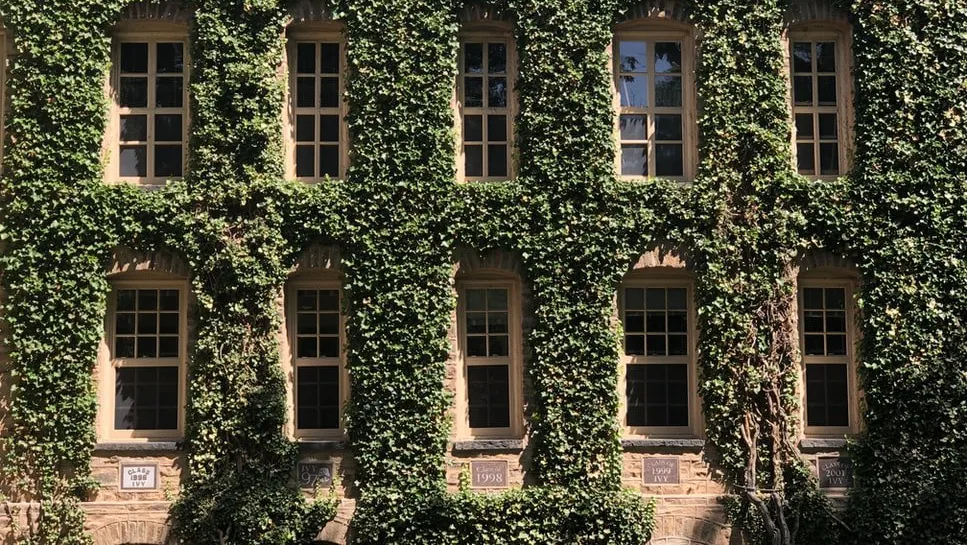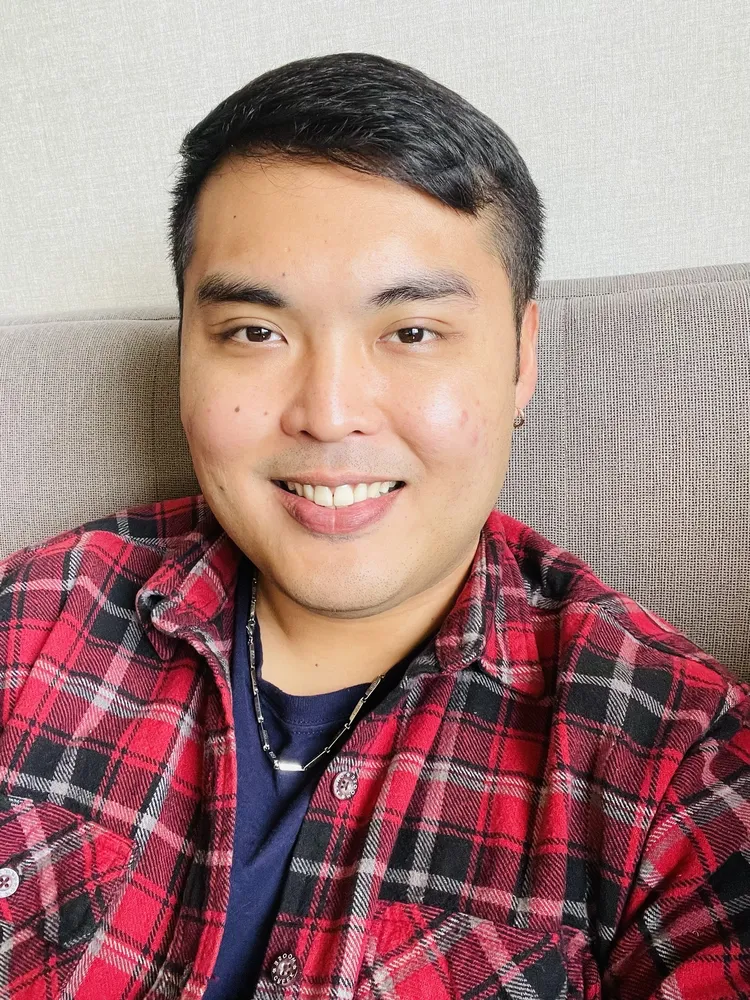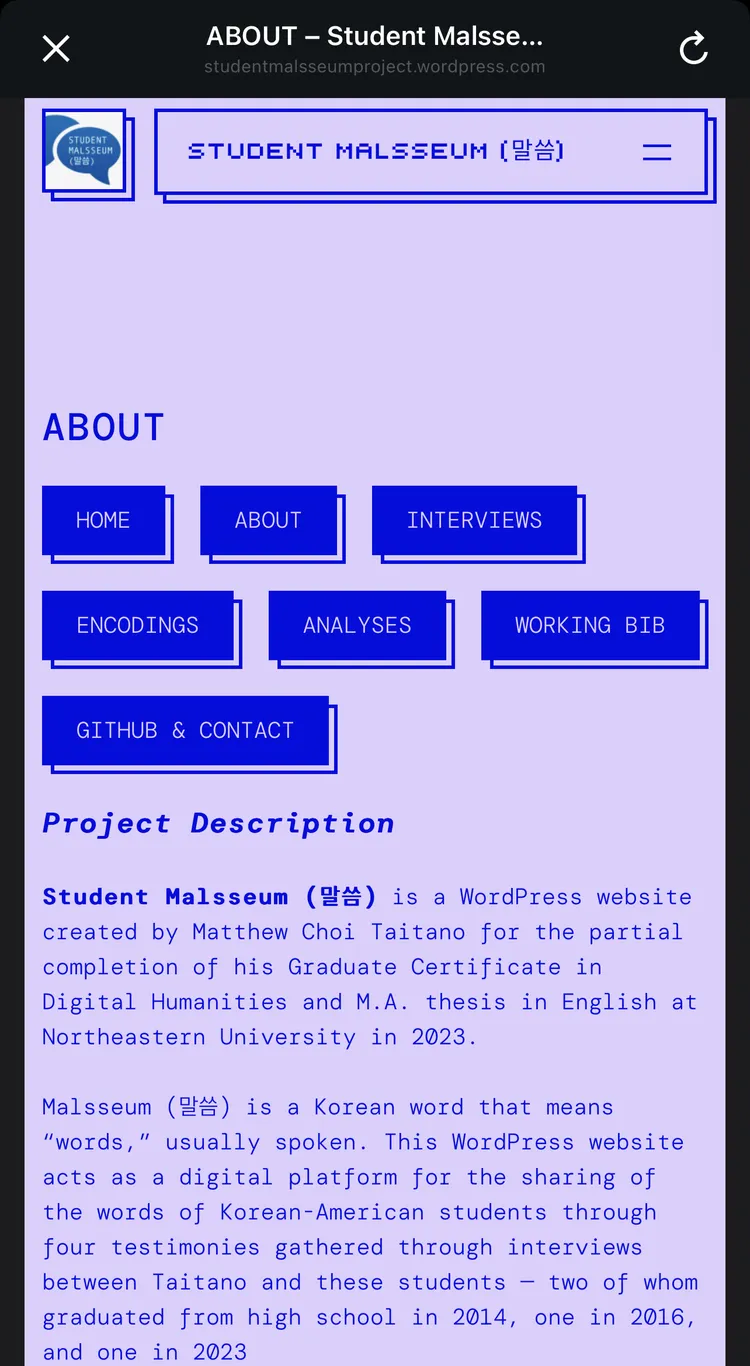Pursuing Digital Humanities After Graduation
11 March 2023
Former CDH Undergraduate Communications Assistant Matthew Choi Taitano ’20 is pursuing an M.A. in English and a Graduate Certificate in Digital Humanities at Northeastern University.

We are pleased to feature Princeton graduate and former CDH Undergraduate Communications Assistant, Matthew Choi Taitano ’20. Matthew is currently pursuing an M.A. in English and a Graduate Certificate in Digital Humanities at Northeastern University.
In this interview, Matthew details how he became interested in DH, what projects he worked on while at Princeton, and how his interests in DH have shaped his graduate research.

How did you become interested in Digital Humanities?
I became interested in the Digital Humanities my very last semester as an undergraduate student at Princeton University, where I received my A.B. in English and Certificates in African American Studies and Gender and Sexuality Studies in 2020. During my last semester, I got a job as the Undergraduate Communications Assistant at the Center for Digital Humanities. I found out about the position through the English Department’s email listserv, and I thought I’d take a chance at applying given my communication skills garnered from my studies in the English Department and my experience as a reporter back home in Guam.
I learned so much from this position: from interviewing Princeton faculty about their DH projects (e.g., the Shakespeare and Company Project, the Digital Intertextual Resonances in Early Chinese Texts Project, and the Tang History Database), to writing blog posts that reflected on and shared with the public these innovative digital projects, I was able to expand my knowledge of what DH means and can look like. Furthermore, I was enticed to learn more about and further engage with the field of DH in my graduate studies at Northeastern University, where I’m currently pursuing my M.A. in English and Graduate Certificate in Digital Humanities with the expected graduation date of May 2023.
Were there any DH projects you worked on as an undergraduate which were particularly meaningful to you?
Although I didn’t work on any of my own DH projects in my position at the CDH, I do remember a meaningful opportunity at Princeton in which I was able to learn about DH tools, even though the term “digital humanities” or “DH” wasn’t used in this context. This opportunity was through the Visualizing Data course taught by Professor Kosuke Imai, who’s now at Harvard University. I took this course during my time in the Freshman Scholars Institute (FSI).
At first, I remember being intimidated by having to use R, which was a programming language I’d never used before. However, I adapted rather quickly, which is likely due to my experience using HTML to code my own and other people’s Myspace layouts in middle school. In the course, we were divided into groups for our final projects; we were assigned datasets from large corporations and told to tell a story about the data through visualizations. Our group was assigned a dataset from CBS, and we were able to use R to create visualizations that illustrated—through nodes and links—audience engagement; in turn, we were able to tell a story about which demographics of people enjoyed what kinds of shows and provided interpretations as to the reasons behind these relationships. Being able to work with such a large dataset, although intimidating at first, helped me gain skills in information management that would serve me well in later projects, such as my Princeton JP and senior thesis, as well as my current graduate work.
What made you want to pursue graduate work in DH?
As I mentioned previously, my work at the CDH really catapulted me into DH. Even though I worked with DH tools previously through my work in the Visualizing Data course, as I mentioned, the words “digital humanities” and “DH” weren’t used in that context, so I didn’t even know how I could continue to do similar work. Thus, when I learned about the field through my work at the CDH, and learned how much I loved the field, I decided to further pursue work in the field in graduate school.

Matthew is currently working on a website (studentmalsseumproject.wordpress.com) for his NULab (Northeastern Lab) Project Seminar final project. The website is still a work-in-progress and will be completed in April.
What kinds of research questions interest you?
In graduate school, my research interests have shifted to be at the intersection of Victorian studies and DH. I’m particularly interested in questions of class difference, race, imperialism, industrialization, and the globalization of the English language in relation to the Victorian era. I’m also interested in genre studies/theory and trauma studies, and often incorporate these fields as critical lenses into my studies in Victorian studies and DH. Finally, I’m interested in digital pedagogy studies, especially in regard to issues of accessibility, inclusion, and diversity.
What questions drive your master’s thesis, specifically?
Even though I’m interested in Victorian studies and DH, my master’s thesis, oddly enough, doesn’t deal with either of these fields. However, the questions raised in my master’s thesis are questions I often raise in my engagement with Victorian studies and DH, specifically in regard to colonialism and imperialism’s relationship to cultural formations and understandings of the English language.
Specifically, my master’s thesis looks at how the genres of testimony and memoir can act as tools for coping and healing for Korean-American students dealing with the social and parental pressures of them to succeed academically, and how these pressures and other external factors, such as the harmful and reductive “model minority” myth, force these students to assimilate into American culture by abandoning their home languages and culture for refined academic English and a subsequent “whitening” of their identities. I became interested in this topic for several reasons. The main reasons include the fact that I, for one, am Korean and grew up in Korean communities, so I relate to the issue personally. Furthermore, Korean and Korean-American students (at the middle and high school level) currently have one of the highest suicide rates among any other ethnic group at this age level. Thus, the issue not only is urgent, but also relates to me on a deeply personal level, which is why I decided to tackle it in my M.A. thesis.
What are your future plans after you graduate with your master’s degree?
After graduating with my M.A. in English and Graduate Certificate in Digital Humanities from Northeastern University in May 2023, I’ll be enrolling in the Literature, Theory, and Cultural Studies (LTC) Ph.D. program at Purdue University in the English Department in fall 2023. There, I plan to work with Professors Aparajita Sagar, Dino Felluga, and Emily Allen to further my intersectional and interdisciplinary research in DH, Victorian studies, postcolonial studies, genre studies, and trauma studies. Afterward, I plan like to pursue a postdoctoral fellowship and/or research position in a DH center/group, English department, library, or museum before hopefully entering the professoriate.
***
Thank you, Matthew, for updating us on your academic journey after Princeton! For current Princeton undergraduate students, there are many ways to engage with the Center for Digital Humanities, from coursework to employment opportunities.